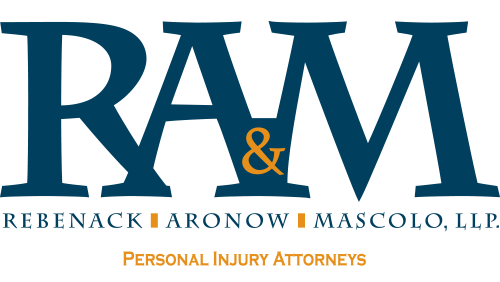What You Need to Know About the New FMCSA Extension
The trucking industry is responsible for hauling over 70 percent of all freight in the United States, and it has the important task of transporting food, medication and other essential items during the pandemic. The Federal Motor Carrier Safety Administration (FMCSA) has recently decided to release an FMCSA emergency declaration extension that loosened trucking regulations. This may have drastic consequences for all the motorists on the road.
The FMCSA Extends the Emergency Declaration Relaxing Trucking Regulations
Back in March of 2020, the FMCSA first issued a National Emergency Declaration. It mandated that all motor carriers and drivers involved in COVID-19 relief efforts no longer had to follow Parts 390 through 399 of the Federal Motor Carrier Safety Regulations. Essentially, this meant that truckers who were transporting essential items no longer had to follow the rules about how many hours they could drive at a time.
With COVID rates soaring exponentially, the FMCSA has decided that now is the time to go ahead and expand this exemption. On July 13, the organization declared that the initial exemption was now valid through August 14, 2020. This means that the trucking industry will not go back to its normal hours of service (HOS) for at least another month.
The emergency COVID trucking declaration does not mean that all truckers are now working 24/7. However, it does change the way the trucking industry handles scheduling and trip planning. Both truckers and other motorists need to be aware of what this exemption really means, so they can make sure they are staying safe.
Only Certain Truckers Qualify for the FMCSA Exemption
Keep in mind that these exemptions do not apply to everyone. According to the language of the declaration, only those “providing direct assistance in support of relief efforts related to the COVID-19 outbreaks” are permitted to ignore regulations. The FMCSA further clarifies that this means a driver who is carrying essential supplies, including but not limited to:
- Food
- Fuel
- Supplies needed for housing
- Masks and gloves
- Household and medical waste
- Hand sanitizer, soap and disinfectants
- Medical or COVID-19 testing supplies
- Essential paper products
- Raw materials used to manufacturer any of the above
Drivers carrying a mixed load that contains primarily nonessential items with a few essential items thrown in do not qualify for the HOS exemptions. Furthermore, drivers taking a nonessential backhaul after carrying an exempt load do not qualify for exemptions either.
How the FMCSA Emergency Declaration Extension Changes Hours of Service Regulations

Typically, truckers are only allowed to work a specific number of hours over a seven-day period. They are usually only allowed to be on duty for 14 hours and drive for 11 hours each day. Furthermore, each driver must spend at least 10 hours off duty before driving and 34 hours off duty before the start of his or her workweek. With the COVID-19 FMCSA exemption, none of these requirements are in place anymore.
Drivers do not have to take breaks and can drive for more than 60 hours in any given workweek. Furthermore, they do not have to take a 34-hour restart as long as they are continuing to perform essential work. The only requirement in place regarding HOS is that a fatigued driver is not allowed to operate a commercial motor vehicle. If he or she informs his or her carrier that he or she is fatigued, a driver must take at least 10 consecutive hours of rest before proceeding.
Drivers must still follow all the other laws, including ones prohibiting texting and driving and those that restrict substance abuse while driving. If a driver moves from providing COVID assistance to his or her normal trucking routes, he or she must take his or her usual 10- or 34-hour break before proceeding. In any week that contains both essential and nonessential trips, a trucker will need to follow the normal regulations for the nonessential trips. Drivers who were suspended from service for any reason must follow the usual regulations to remove their suspension.
Motorists May Be at Risk Due to This FMCSA Emergency Declaration Extension
On the surface, this FMCSA extension sounds like a good thing that can help with supply shortages all over the nation. However, some trucking accident lawyers worry that it may be encouraging risky behavior. When a trucker is pushing him or herself to the limit to help others, his or her fatigue may make it harder to focus on the road. This can potentially lead to dangerous accidents. A concerning report from the National Transportation Safety Board indicates that 31 percent of all fatal trucking accidents were due to driver fatigue.
This is especially concerning when you consider the fact that accidents are on the rise across the nation. More people are speeding due to less crowded roads and law enforcement being too busy to penalize speeding. This contributes to all sorts of dangerous crashes. Truckers who have to drive in these hazardous conditions may find it harder to protect themselves and others when they are fatigued.
Trucking Companies May Still Be Liable for Breaking the Law
If you have gotten into a COVID-related trucking accident, you do not have to miss out on receiving compensation just because of these changes to the FMCSA regulations. Trucking companies can always be held responsible when they are breaking the law. Since the HOS exemption states that fatigued drivers have to be allowed to rest, any company that prevents its drivers from resting may still be held liable. Any company that tries to make nonessential drivers skip their breaks and follow the exemption guidelines instead may also face legal consequences.
Furthermore, fatigue is not the only reason you might get into a trucking accident. An unfortunate reality is that mistakes and negligence can still happen during the COVID crisis. If someone is speeding, ignoring traffic signs or breaking other laws, you may have a case to sue that individual. You might also be able to obtain compensation if any essential machine maintenance was ignored. Any time you are not at fault in an accident, a truck accident lawsuit is always a possibility.
When an accident is caused by one party’s negligence, the injured victims can sue that individual. During the lawsuit, your trucking accident lawyer will help you show how the other party’s poor behavior led to your injury. In return, you may be awarded financial compensation. Winning a personal injury lawsuit could help you cover costs for things such as:
- Repairing or replacing your vehicle
- Paying medical bills
- Covering lost wages and earning potential
- Compensating for pain and suffering
- Assisting with mental trauma
Get Help After Your Trucking Accident
If you or a loved one has been in an accident, it is a good idea to consult an experienced trucking accident lawyer. At RAM Law, our experienced team is on your side. We can provide you with a free consultation after an accident. If we think we can help with your case, we can assist you with the entire litigation process. Even during the COVID-19 pandemic, we are working remotely to help New Brunswick and Somerville residents. To learn more about our services, call (732) 394-1549, or fill out our online contact form.


